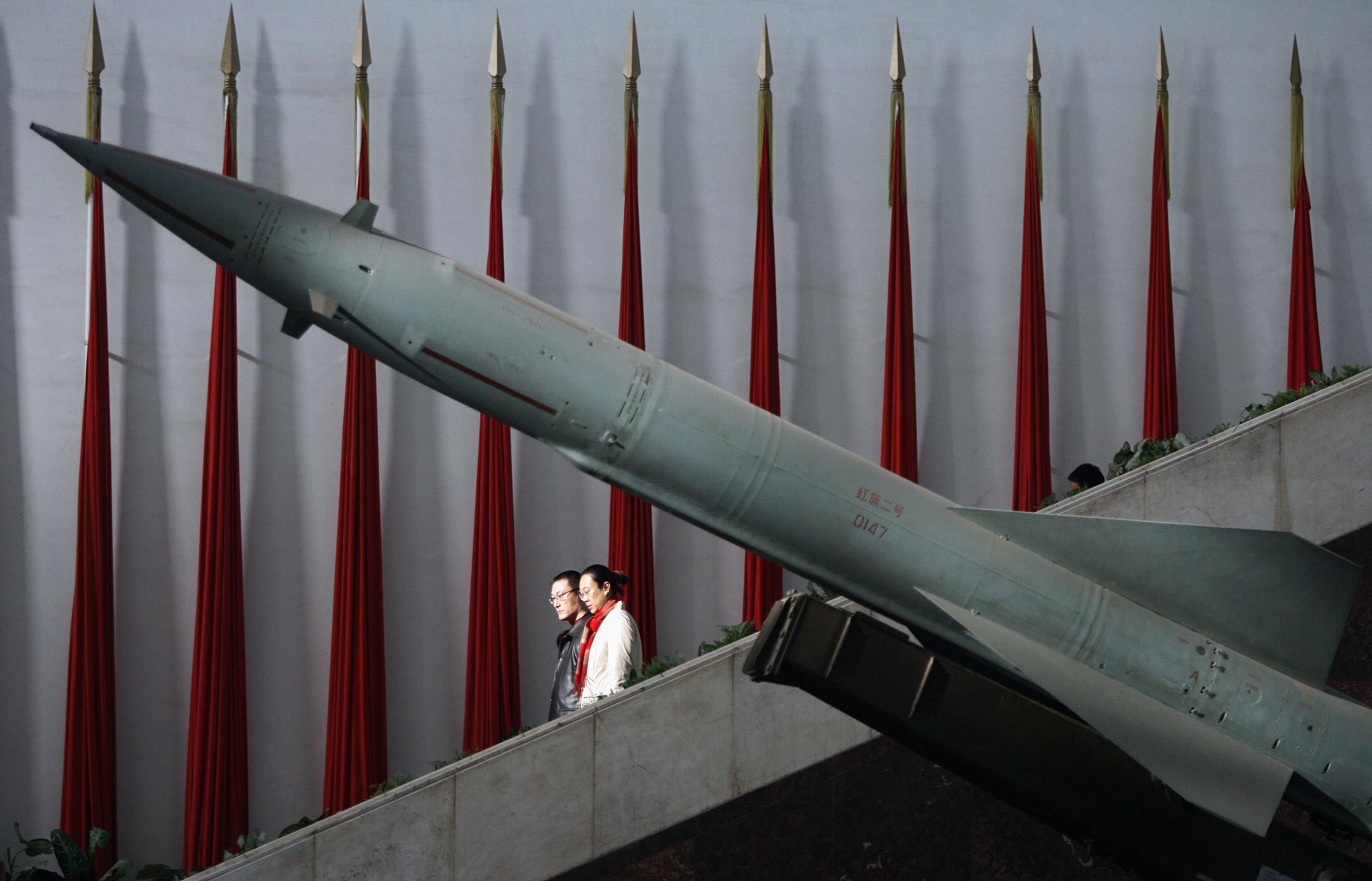China condemns US over nuclear escalation, accusing Trump administration of 'Cold War mentality'
Beijing criticises Pentagon report, calling on Washington to 'earnestly shoulder its special and prior responsibility for its own nuclear disarmament'

China has criticised suggestions by the US government that it could be a potential nuclear adversary, accusing the Trump administration of peddling a “Cold War mentality”.
The US defence department said its nuclear program had been tailored to “prevent Beijing from mistakenly concluding” that it could gain advantage by using its nuclear weapons in Asia.
But a spokesperson from China’s defence ministry said its arsenal is the “minimum level” required for security and called on Washington to reduce the size of its own weapons programme.
It also pledged never to be the first to discharge any nuclear device “under any circumstances”.
“The Chinese side expresses firm opposition” to the report, said Chinese ministry spokesman Ren Guoqiang.
“We hope the US will abandon a Cold War mentality and earnestly shoulder its special and prior responsibility for its own nuclear disarmament.”
The comments followed the publication of a US policy statement known as the Nuclear Posture Review (NPR).
The document highlighted Russia as the US’s most dangerous nuclear opponent, along with North Korea and China.
The ruling Communist Party’s military wing, the People’s Liberation Army, has the world’s fifth-largest nuclear arsenal, with 300 warheads, according to the Stockholm International Peace Research Institute. The US and Russia each have about 7,000 warheads, or about 20 times as many as Beijing.
Beijing has rattled Japan, South Korea and Southeast Asian governments with increasingly assertive gestures and belligerent comments aimed at enforcing its claims to disputed islands and swathes of ocean.
In December, China sent bombers and fighter planes to fly around Taiwan, the self-ruled island the communist mainland claims as its territory. The warplanes flew near South Korean and Japanese air space, prompting Japan to dispatch fighter jets to intercept them.
Mr Trump responded to the report’s findings on Friday, saying it confirmed the US commitment to “nuclear non-proliferation”.
“Over the past decade, despite US efforts to reduce the roles and numbers of nuclear weapons, other nuclear nations grew their stockpiles, increased the prominence of nuclear weapons in their security strategies, and – in some cases –pursued the development of new nuclear capabilities to threaten other nations,” he said.
“The strategy develops capabilities aimed at making use of nuclear weapons less likely. It enhances deterrence of strategic attacks against our nation, and our allies and partners, that may not come in the form of nuclear weapons.
“And, importantly, it reaffirms our commitment to arms control and nuclear non-proliferation, maintains the moratorium on nuclear testing, and commits to improving efforts to prevent, detect, and respond to nuclear terrorism.”
Additional reporting by agencies
Join our commenting forum
Join thought-provoking conversations, follow other Independent readers and see their replies
Comments
Bookmark popover
Removed from bookmarks